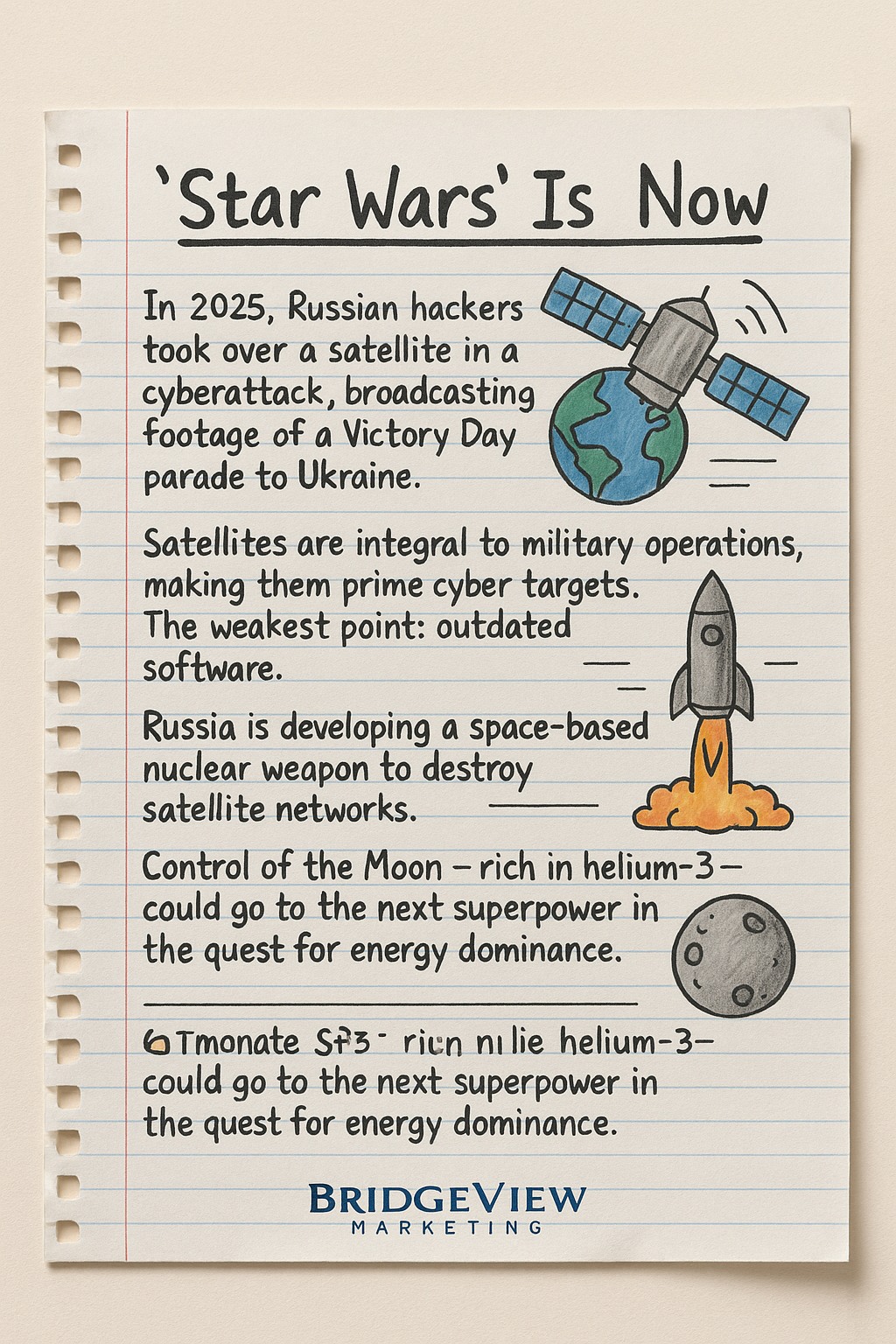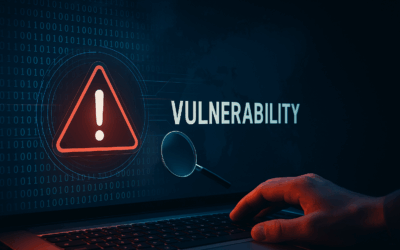In an increasingly interconnected world, the battle for digital security is escalating, with new frontiers emerging that demand our immediate attention. This handwritten BVM blog post delves deeply into the critical, forward-looking aspects of cyber defense, exploring the massive increase in attack vectors that now extend beyond our terrestrial boundaries. As we witness the weaponization of space and the growing threat to our satellite infrastructure, understanding these evolving challenges is paramount to safeguarding our future.
“Star Wars” Is Now
On May 9, 2025, Russian hackers successfully hijacked a satellite that provided television service to Ukraine. Instead of their favorite programming, people in Ukraine saw footage of Putin presiding over the Victory Day parade in Red Square–a move that signaled that the war in space is here.
Taking out a satellite can be done by breaching its software; the resulting damage to forces on the ground could be enormous—imagine if troops lost their GPS. Satellites play a significant role in military operations, including navigation systems, intelligence, supply chains, and launch detection. Hackers always look for the weakest link. If a satellite is running on outdated software–that could be it.
When Russia invaded Ukraine, it used malware to infect tens of thousands of modems that caused an outage affecting vast swaths of Europe.
The Russia-linked Viasat hack affected tens of thousands of people in Ukraine and across Europe, with outages impacting several thousand Ukrainian internet users and tens of thousands of customers using satellite services provided by Viasat’s subsidiary. The attack also disrupted remote connectivity for approximately 6,000 wind turbines in Germany and affected fixed broadband customers in other European countries like France, Hungary, Greece, Italy, and Poland.
If that’s not alarming enough, think about this:
National security officials say Russia is developing a nuclear, space-based weapon designed to take out virtually every satellite in low-Earth orbit at once. The weapon would combine a physical attack that would ripple outward, destroying more satellites, while the nuclear component is used to fry their electronics.
It’s not just the physical conflicts on Earth that are raising concerns; the battle over the Moon could soon be on. The Moon is full of helium-3, which could be used for nuclear fusion. Control of the Moon could be the deciding factor in determining which countries will become superpowers. “This isn’t sci-fi. It’s quickly becoming a reality,” Joseph Rooke, a cybersecurity expert, said. “If you dominate Earth’s energy needs, that’s game over.” China and Russia have already announced plans for a joint nuclear power project on the Moon.
The U.S. Space Force was created in 2019 in part to defend U.S. satellites from attack. “Space is a warfighting domain, and it is the Space Force’s job to contest and control its environment to achieve national security objectives,” it said in the statement.
Though Darth Vader may not be kicking down any space station doors, hackers certainly are trying to knock out satellites, and the race to dominate the Moon appears to be on.




0 Comments